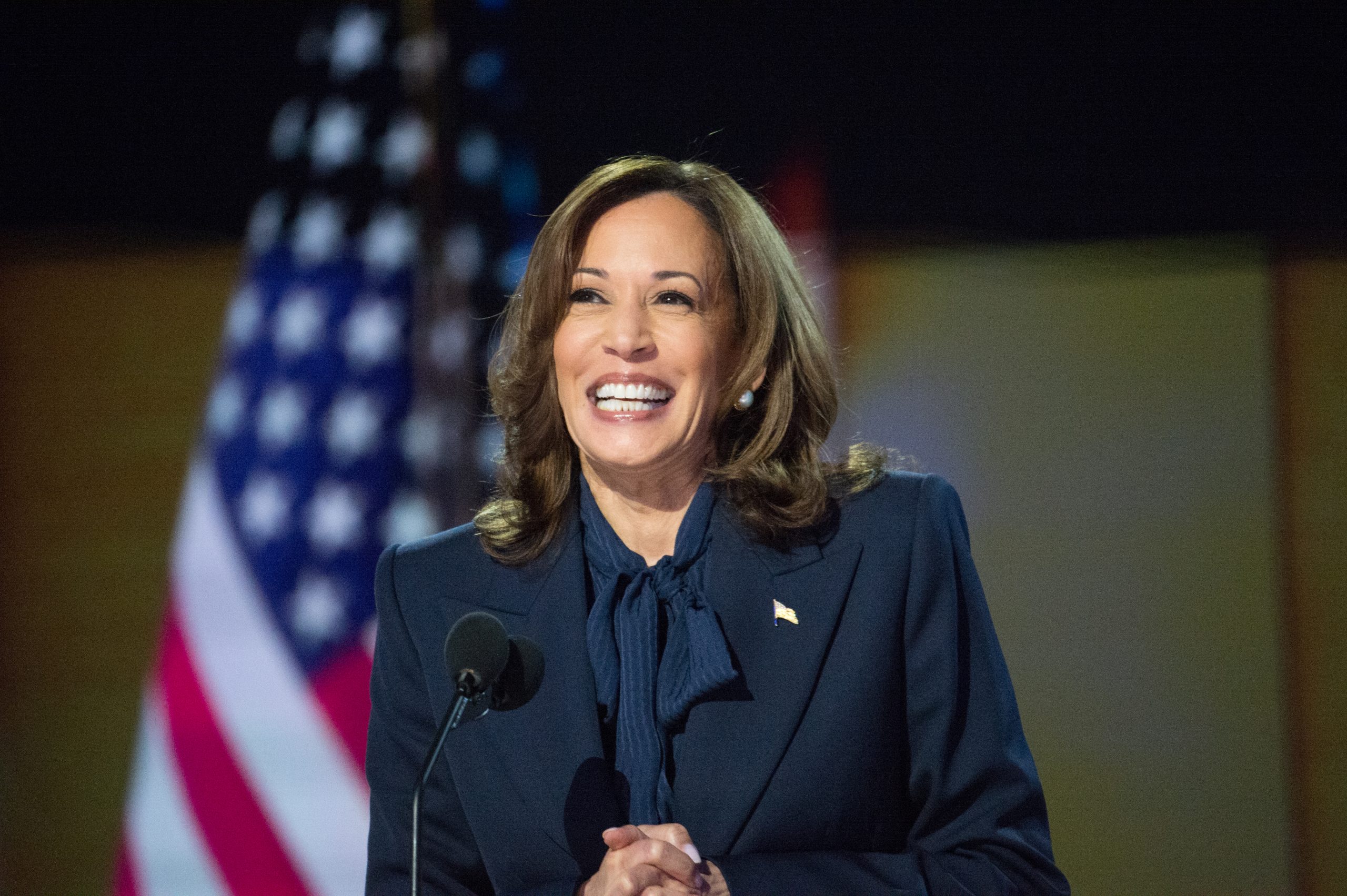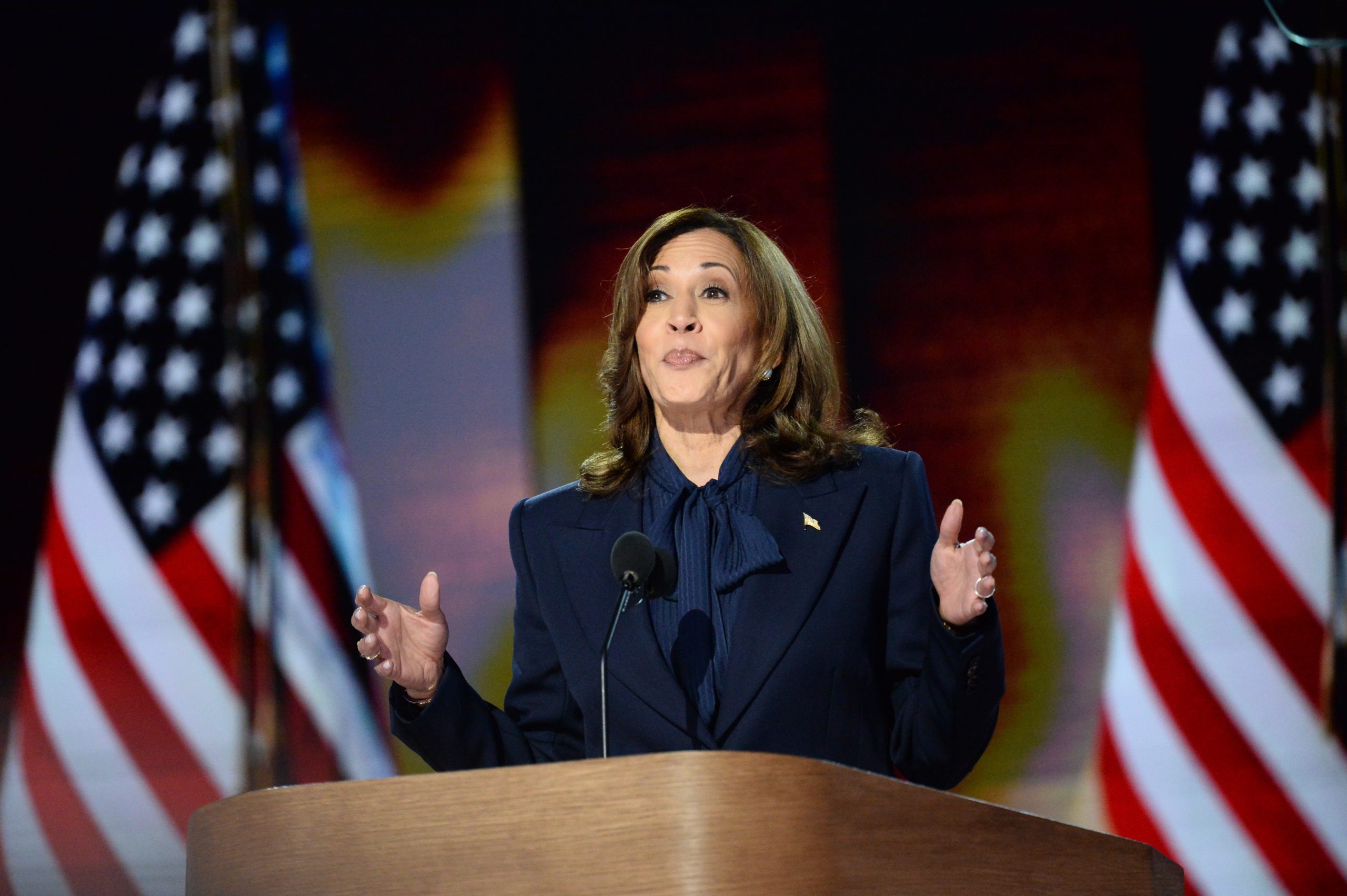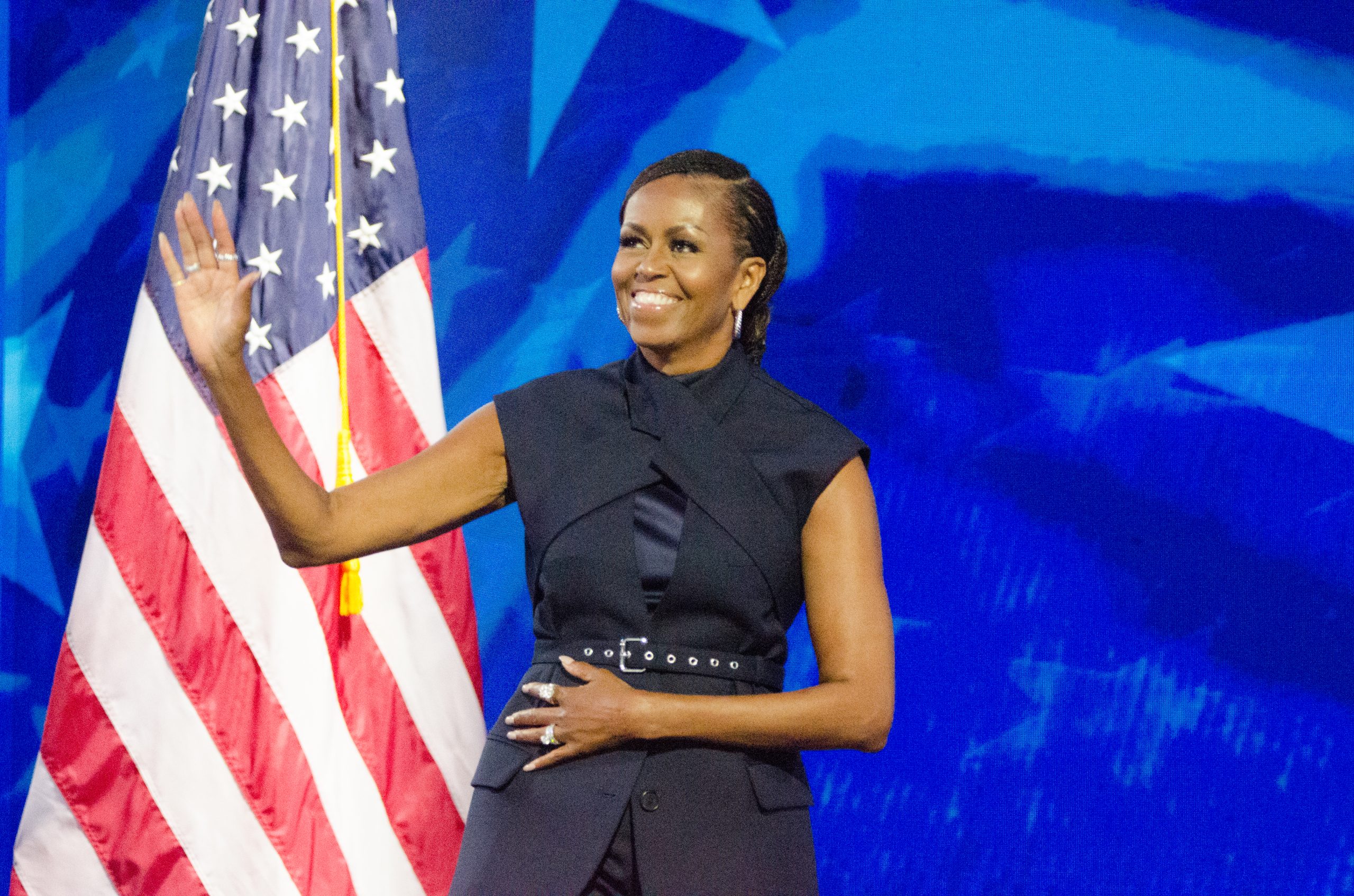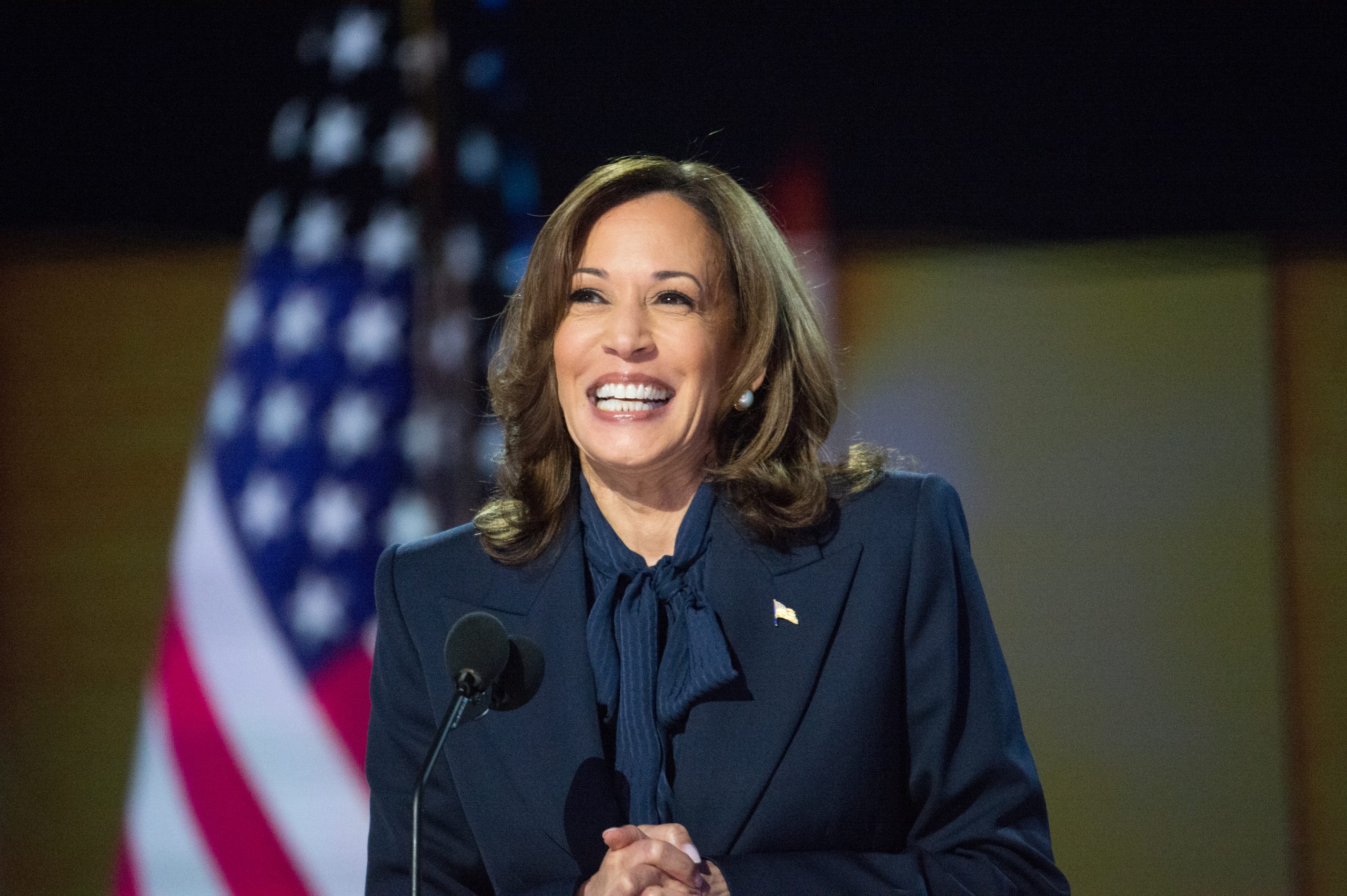
CHICAGO, ILLINOIS, UNITED STATES – AUGUST 22: U.S. Vice President Kamala Harris attends the 2024 Democratic National Convention (DNC) at the United Center in Chicago, Illinois, USA, on August 22, 2024. The DNC marks the ceremonial coronation of U.S. Vice President Kamala Harris and Minnesota Governor Tim Walz as the party’s presidential nominees. (Photo by Jacek Boczarski/Anadolu via Getty Images)
Hair has always been more than just a physical feature. For black women, it symbolizes identity, culture, and most importantly, political resistance. Throughout history, black hair has been a canvas for self-expression and a target of societal control, reflecting the broader struggle for freedom and equality. This intersection between hair and politics is particularly evident in the lives of prominent black female figures who have used their hairstyles as a form of resistance, empowerment, and political statement.
Current presidential candidate Kamala Harris is known for her round-brushed silk hairstyle – a style that many African-American women can identify with. However, the look has not always been received positively. In the early 20th century, as blacks navigated a society dominated by Eurocentric beauty ideals, straight hair became a way of assimilation.
Straightened hair and hair straighteners became popular as a fashion choice and a survival tactic in a world where conformity could mean the difference between opportunity and discrimination. Straight hair was often seen as a ticket to respectability, a way to “prove” one’s worth in a society steeped in racism.
Read “More than just ballots: The impact of social media on voting priorities”

Former First Lady Michelle Obama embodies the complexity of black hair in the public eye. During her tenure in the White House, she often wore her hair straight — a decision many see as influenced by the pressure to conform to the expectations of a predominantly white political environment. During her book tour, “The Light We Carry: Overcoming in Uncertain Times,” she recalled her time as first lady, revealing that the nation is “just getting used to” having a black president and his family in the White House. “I wore my hair straight because I knew they weren’t ready for it,” she said, acknowledging that it would have been easier to wear her hair in braids.
This week, Michelle Obama made a strong statement at the Democratic National Convention by taking the stage with a braided ponytail. Ssanyu Lukoma, a Howard University student covering the convention, described the moment as exhilarating. “It was exhilarating to see Michelle Obama with her braids. Not only did she wear her braids beautifully, but she did it confidently. As black women, we are often oppressed for our hairstyle choices, especially on professional stages, and I would argue that being on the stage at the convention is one of the most professional situations you can be in,” she tells GU.

This raises the question of what constitutes “professional” hair. Studies show that black women’s hair is two and a half times more likely to be perceived as unprofessional compared to that of their female counterparts. More than half of black women surveyed felt pressured to straighten their hair to succeed in job interviews, and two-thirds reported altering their hair for such interviews. In addition, one-fifth of black women aged 25 to 34 have been sent home from work because of their hair, and one-quarter believe they have been denied a job because of their hairstyle.
Title VII of the Civil Rights Act of 1964 prohibits employment discrimination based on race, color, religion, national origin, and sex. While that law and other federal regulations protect against racial discrimination, the CROWN Act specifically addresses hair texture and culturally significant hairstyles. It makes clear that discrimination based on hair is a form of racial discrimination and is therefore illegal.
The CROWN Act (Creating a Respectful and Open World for Natural Hair) is a legislative measure to combat discrimination based on hair texture and culturally significant hairstyles, particularly for Black people. It was launched in 2019 and has been gaining momentum since then.
By June 2024, at least 24 states—including Alaska, Arkansas, California, Colorado, Connecticut, Delaware, Illinois, Louisiana, Maine, New York, Oregon, Texas, Virginia, and Washington—as well as more than 28 municipalities and the U.S. Virgin Islands will have enacted the CROWN Act or similar legislation. More than 25 states have pre-filed, filed, or plan to introduce such measures.
More and more black women in politics and public life are embracing their natural hair, challenging societal norms and inspiring others to do the same. Black hair evolution is not just about aesthetics; it is about the ongoing struggle for recognition, respect and the right to be yourself everywhere.
Read “More than just elections: Third-party presidential candidates”
About the author: Asia Alexander is a student at Howard University and covers all topics related to pop culture, politics, entertainment and business.

